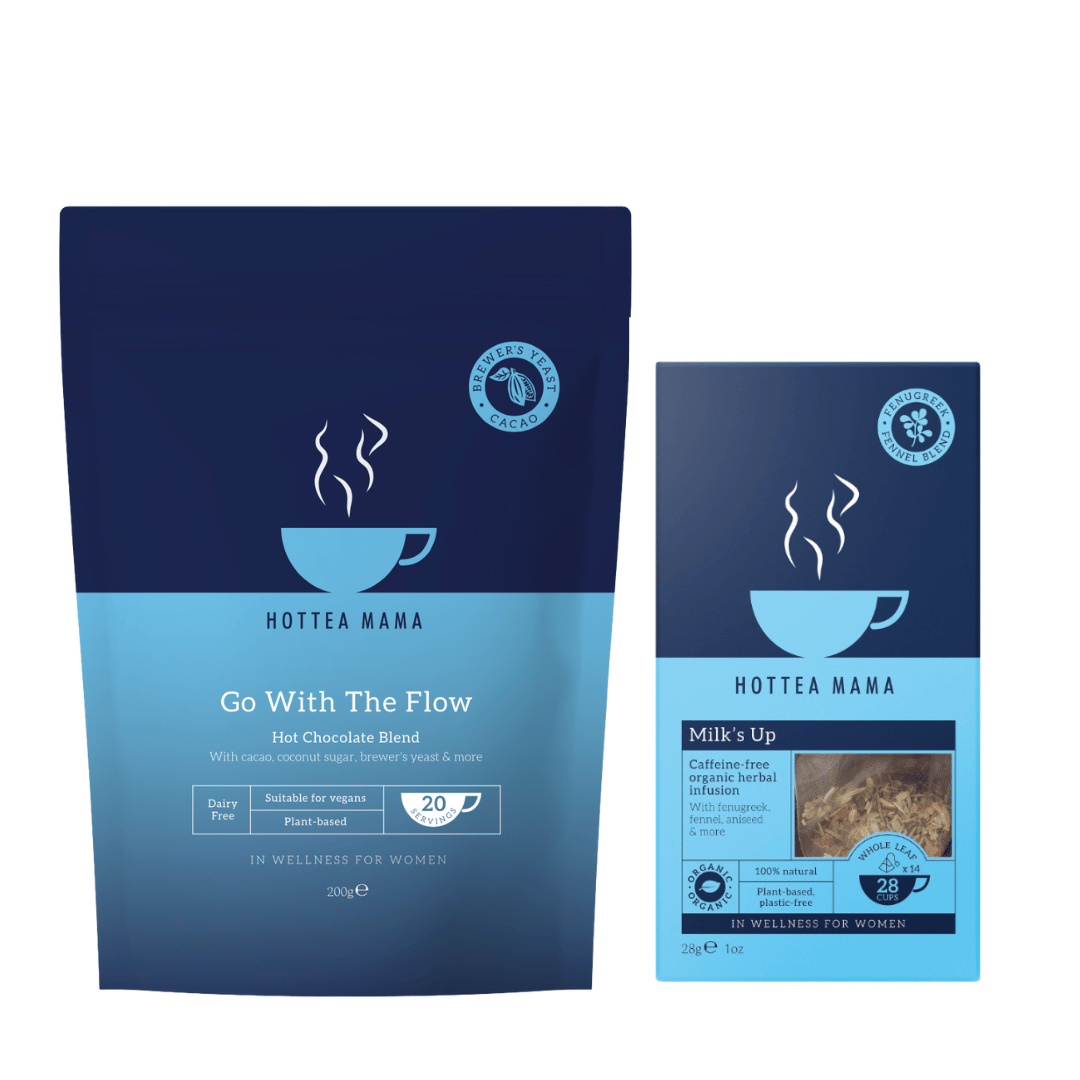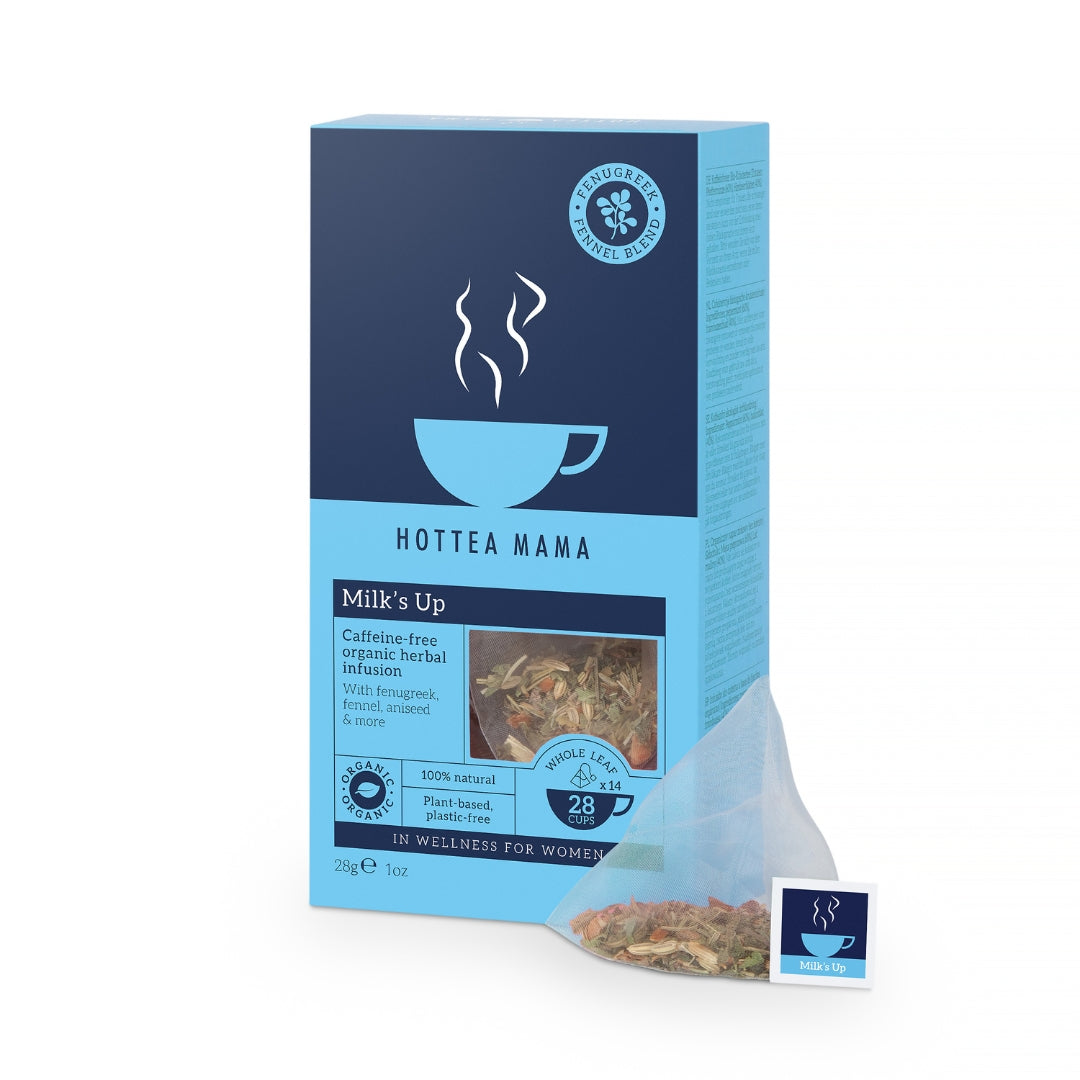The Benefits of Fenugreek for Breast Milk Production: What the Research Says

For breastfeeding mothers, maintaining a healthy milk supply is often a top priority - but a stressful one. Many introduce natural galactagogues - substances that help increase breast milk- into their diet to try to support this. Fenugreek is one of the most well known herbs for this and has gained widespread popularity. But does it really work, and what does the science say? Here’s a closer look at the benefits of fenugreek for breast milk production, with links to the latest research.
What Is Fenugreek?
Fenugreek (Trigonella foenum-graecum) is a herb native to India, North Africa, and parts of the Mediterranean. Traditionally used for its digestive and anti-inflammatory properties, fenugreek seeds have also been valued for centuries as a natural way to boost milk supply in breastfeeding mothers.
Does Fenugreek Increase Milk Supply?
Yes—multiple small scale research and reviews support fenugreek’s use as a galactagogue:
Systematic Reviews & Meta-Analyses:
A 2018 network meta-analysis of randomised controlled trials found that fenugreek significantly increased breast milk volume compared to placebo and control groups. Consumption of fenugreek significantly increased the amount of produced breast milk versus placebo—with increases ranging from 11 to 18 ml per feed in the studies reviewed.
Clinical Trials:
A review of nine clinical trials found that fenugreek use was associated with increased breast milk adequacy, more frequent breastfeeding, higher neonatal weight gain, and increased maternal prolactin levels (the hormone responsible for milk production).
Early Postpartum Support:
Some research suggests fenugreek is especially helpful in the early days of breastfeeding, supporting lactogenesis (the onset of milk production) and helping mothers feel more confident in their ability to nourish their babies. Though this is limited research.
How Does Fenugreek Work?
Fenugreek contains phytoestrogens—plant compounds that mimic estrogen in the body. These may stimulate the mammary glands and increase the production of prolactin, the hormone essential for milk secretion. Additionally, fenugreek’s traditional use as a digestive aid may help new mothers feel more comfortable and supported during the postpartum period.
Is Fenugreek Safe?
For most healthy mothers, fenugreek is considered safe when used as directed. However, it should be avoided during pregnancy due to its uterine-stimulating effects, and women with certain medical conditions (such as diabetes or clotting disorders) should consult a healthcare professional before use. Side effects are rare but can include mild digestive upset or a maple syrup-like odour in sweat and urine. If you find yourself experiencing these, stop drinking fenugreek - you can consider looking at other galactagogues like brewer's yeast instead.
What About Fenugreek Blends?
Fenugreek isn't the only herbal galactagogue that may support breastfeeding mums. Fennel, aniseed and nettle are all believed to have similar benefits, and it's why we've included these in our Milk's Up breastfeeding support tea.
Conclusion
Fenugreek is one of the most researched and effective herbal galactagogues for increasing breast milk supply. Supported by small scale research and centuries of traditional use, it offers a natural option for mothers seeking to boost their milk production. As always, consult your healthcare provider before starting any new supplement, especially if you have underlying health conditions.










Comments